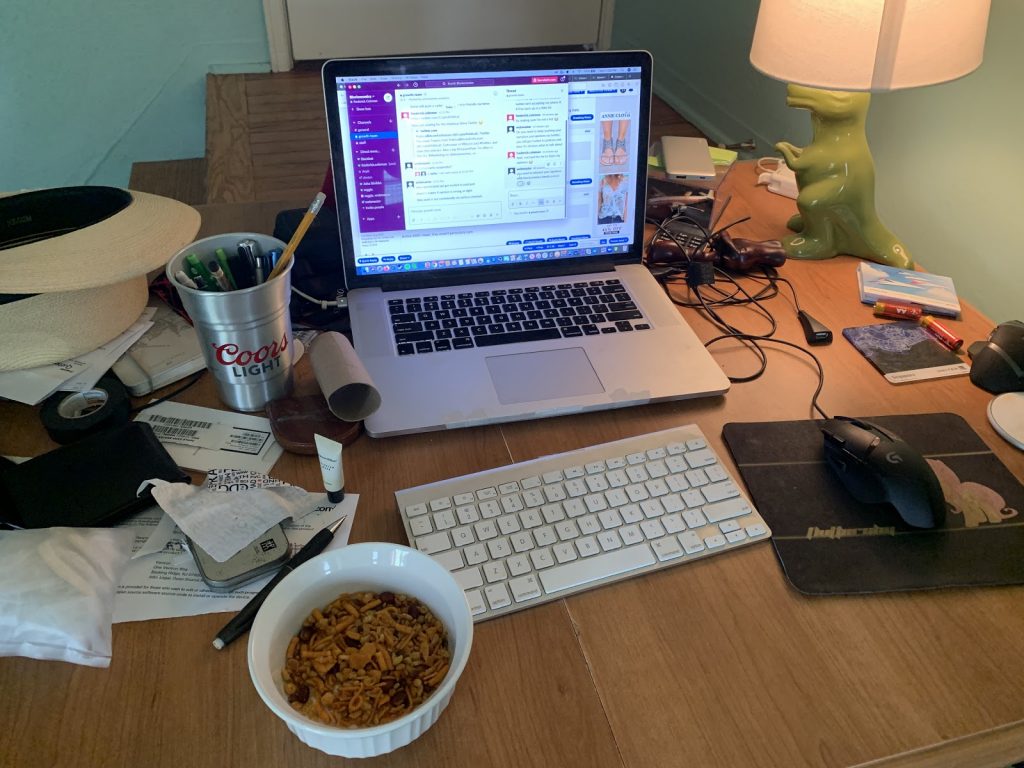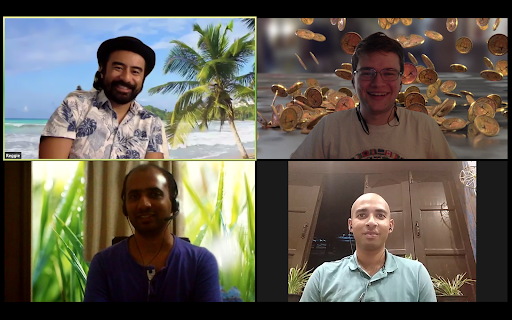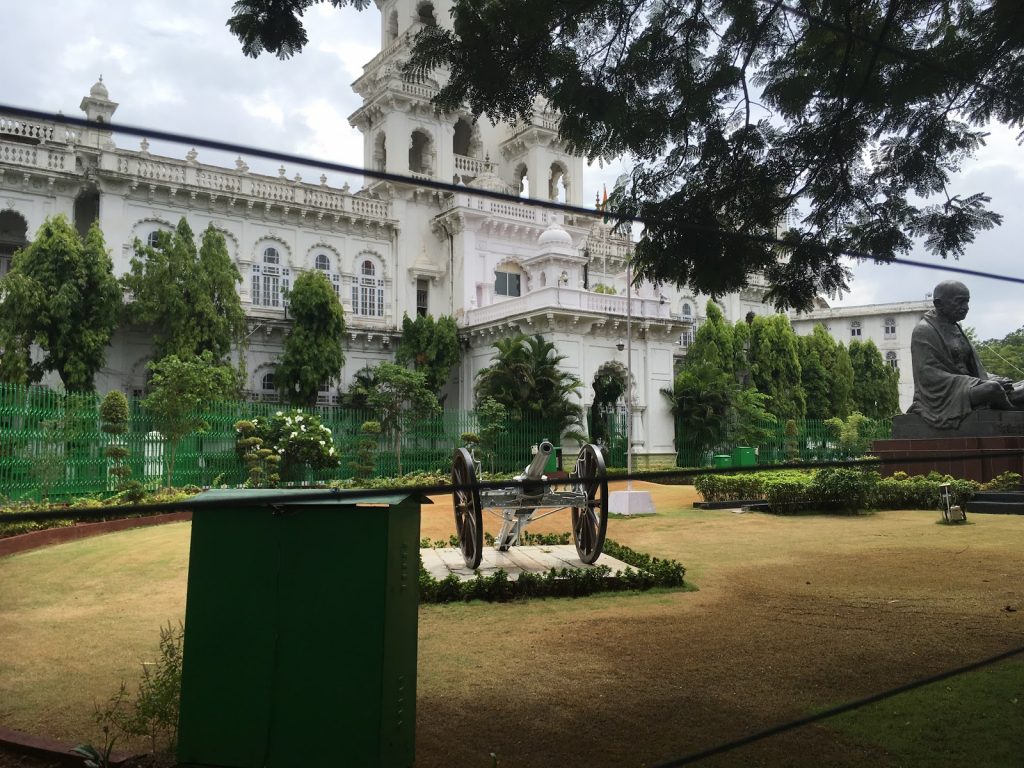1. Hey, can you please introduce yourself?
I’m Frederick Coleman, currently the VP of Growth at Blockonomics, although I studied international relations in Switzerland at Franklin University Switzerland. My avocation is travel, whether it’s planning it or doing it, I’ve been a frequent flier since I was born (my parents got me my number when I was 6 months old, although it took me 2 years to get my first status). I’m also very politically active, having campaigned for a number of US politicians. I also have a strong love for history, especially for the Ottoman Empire.
My love for the above motivates much of what I do, whether it’s attending university in Switzerland, or working for Blockonomics. I graduated university in 2019, where I wrote a thesis on airlines and their influence on political negotiations, using game theory. Although I’m currently back in the US, I hope to return very soon to Europe to pursue a Masters Degree, and hopefully stay there for a long term.
2. What motivated you to choose remote working?
The main motivation was the ability to travel. Just before my Sophomore year at university ended, I knew I needed to have some kind of work experience under my belt. However, I was planning on spending the first half of the summer with my parents in Europe, which let out a job in my hometown. I needed something that would allow me to work in the AirBnB, and also still give me time to see the sights.
A friend of mine suggested I check out AngelList, he had worked for a startup that he found through that site. I browsed the site and sent out a few applications, but only a few got back to me because I didn’t have experience, nor was I studying, with communications or social media. However, the application I sent in to a small startup with Bitcoin was received, and we had an interview. Although I knew very little about Bitcoin, Shiva, the CEO, felt I showed promise, and so hired me for a marketing internship.

3. What were your initial months like? Did it live up to your expectations?
When I first started at Blockonomics, I was mainly left to handle much on my own, with Shiva providing the final okay. This meant I had to do a lot of on the job learning on how to manage Twitter, Youtube, and Medium, as well as to come up with ideas on articles to write and videos to film. The other issue was Shiva was time zones away, he was based in India while I was in Europe. This meant a lot of the time was radio silence, I’d have to wait until the next morning to get a response to whatever I wrote so I could incorporate edits.
This all taught me to have a lot of independence in my job, I could choose to work in a direction I thought worked best, I could choose when to work, and I could choose how to work. If I wanted to work on the article at midnight, and enjoy Bratislava during the day that was entirely acceptable, so that’s what I did.

Therefore, it helped me do exactly what I wanted to do; get some job experience and still enjoy my summer traveling. It also looked good on my resume, since the team was so small, my job title was officially “manager,” although I was only managing myself.
4. How did you find remote working roles?
Finding remote jobs is tough. I’ve searched on and off, but other than Blockonomics, who I’ve worked on and off with since 2017, I’ve never successfully gotten another remote job. Unfortunately, especially before COVID, there are certain jobs that are more often to be remote, these being marketing/social media management/writing and computer engineering. Since these aren’t my fields, there aren’t as many options. With COVID, this is changing though, as more companies are realizing that other job positions can operate perfectly well as a remote position.
The key to finding a remote job is the same as any other job; searching the classifieds. But unlike most other jobs, you have to know which job sites to look at. My college friend’s recommendation of AngelList was a lifesaver, those are the types of places you can find good remote jobs. I recommend that to anyone who’s looking for a job, especially these days as remote companies aren’t as affected by the pandemic.
5. What have been the best, good and worst aspects of remote working for you?
The best, without a doubt, is the flexibility. Although I can’t travel as much these days (thanks, COVID), it has allowed me to maintain my travel lifestyle while still getting paid. Since I’ve got my frequent flier status, I can work very easily at airports, thanks to the lounges with free wifi and good business desks. It’s a great feeling to know that you don’t have to worry about setting vacation days down on a calendar. At one point, I was able to juggle a month long full-time volunteer position with a US Senate campaign while simultaneously doing my work. Although I wouldn’t recommend doing it again, the fact that I could pull that off made me feel pretty good.

The good is what it has taught me. Although I was always an independent learner in university, working remotely with a boss half a dozen time zones away has taught me how to feel confident in my work, and ensure I keep to a schedule even when an external 9to5 one isn’t enforced. It’s also assisted me with teaching others about remote work. When the pandemic first struck, I was working for a large international organization. The team wasn’t used to all the tools and communication needed to work remotely, and I was able to assist in getting the team working smoothly in a new environment, before my contract ended.
The bad is the casualness, I don’t feel as comfortable with more formal workspaces. While I was working (non-remotely) at my position at the international organization, I always had some problems with keeping a hierarchy, showing up to work in a good business shirt, and dealing with the 9 to 5. Although I didn’t have major issues, and I absolutely loved the work, and would work there again if given the chance, I will always prefer a degree of casualness in the day to day work.
Since that wasn’t a true bad though, I will add, I do miss the physical interactions. It is nice to be able to go up to a coworker and say “let’s go get lunch from down the street.” Although you can have very similar dynamics with remote colleagues, and become very good friends with them, not being able to see their face daily just to chat is always a little sad.
6. What tools do you swear by while working remotely?
I love Slack, the ease of chatting is just so useful, with the mixture of individual chats and group chats, and that chats are historically saved with a good search function. We spend much of our time on Slack, and it’s great.
For video chatting, that’s a tough one. Zoom is what we currently use, and it does a good job. However, I’ve also used MS Teams, and it worked well too. I’m hesitant to recommend any Microsoft product though!

Document editing and production and sharing is done through Google Drive, without a doubt. We do all our editing there, because it’s just so easy to share and make suggestions. That you can also upload non-google created documents is an added plus, makes it easy to share my videos for critique by the team.
Finally, because organization is so important, Trello is so utterly useful. It has saved my behind more than once when I forgot which project I’m supposed to be working on, as we keep track of it all on Trello.
7. Your most exciting/ hilarious experience since you started working remotely.
I’d say my most exciting was actually not working remotely for a few weeks. As I’d mentioned before, Shiva, the CEO was based in India, and at the time one of the other marketing people was based in the same city, so they rented some desk space at an office share building. I was flying to India for a university conference, and Shiva offered to fly me from where the conference was being held to work in the “office” for a few weeks.

It was great finally meeting people I’ve worked so hard with in person, and we got a lot of good work done over those two weeks, including a live-action advertisement. The free hotel stay and ability to explore a city I’d never been to made it all the more special. And after work, we’d stop over at one of their favorite pubs for a beer.

8. What is your golden advice to a new remote worker?
I’ve mentioned before that the best thing about remote work is the flexibility. That goes both ways, when entering the remote workforce, you must be flexible. There’s a lot of differences from an in person work experience, right down to the tools you do your work on (often your personal computer). Your manager might be in different timezones, and your colleagues might not always be there to immediately answer a question. That’s okay! Learn how to be flexible in what you’re working on.
If you’re not careful, your work can take over your personal life as the lines between workplace and home are blurred. A remote worker has to always know when it is time to stop working. That doesn’t have to be a 9 to 5 rule, I more often work with breaks built in, work for 2 hours, break for one hour. It might make the “workday” longer, but you’ll be enjoying all your hobbies throughout the day.
9. How do you see your career shaping up and your goals?
Although I’m still not entirely sure what comes next for me, I believe my end goal is to be a professor in international politics. Although I’m not working in international relations right now, it is certainly forming a foundation for me to build off of. The independence I’ve learned is vital in academia. And I’d hope to incorporate the many benefits of remote learning into a classroom someday.
But working at Blockonomics helps me pay the bills, and gets me ready for when I want to go off to grad school. That alone is useful in reaching my further goals. I’ll be forever thankful for remote work in giving me the opportunity to still do the things I love, whether that’s travel or political volunteering, that helps me be a well-rounded person which always helps in my career.
10. How do you expect remote working to evolve in the future?
COVID changes everything. Before, many companies viewed remote working with suspicion–they didn’t trust their employees to actually get work done at home. Now that employees have been forced to work at home, companies realize they can actually be more productive, and save some overhead costs, if they shift more people to remote work.
This is such a good thing for society. For too long, especially in the US, working and the commute to work has taken up such a large portion of a person’s time. Now, remote work will provide the option for many people to rediscover their personal lives again. They can relearn their hobbies and spend more time with their family, even when they are working.
Essentially, remote work has a chance to revolutionize how we think of work and life. There is a great opportunity here for remote work to make us all realize that work isn’t everything, we can still do fun things while working (remotely).
11. Where can we follow you on?
You can find my Twitter at @CryptoPolitical. I also always appreciate a connection on Linkedin! You can also follow me on Medium, I’m often writing articles like this.
Are you a remote worker too?
Would you like to share you story?
Just reach us at hrishikesh@remote.tools!